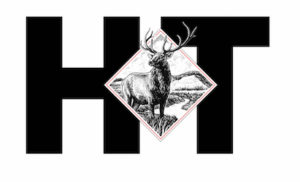RBC | This is the first in a series of articles on climate change. My purpose is to review the evidence that climate change is damaging ecosystems and disrupting the economy. Its costs are rising rapidly, and we have a very short time in which to prevent catastrophic effects on water systems, food supply, and infrastructure.
In this four part series, I will describe the science behind our understanding of the climate. How do we know the planet is warming? How do we know that the rise in global temperatures is caused by human activity? How do we know that climate change threatens our way of life? Next, I will explain how we can predict future climate. How do we know that, unless we reverse current trends in greenhouse gases, changes in earth’s climate system very likely will have catastrophic consequences within the next 10 to 12 years? What are climate models, on which scientists base their predictions, and how do they work? Then I will present evidence for climate change in our region, including changes documented locally in the White River basin. Finally, I will propose measures we can take to limit the change and to adapt to changes that are already inevitable.
It’s not a happy picture. It requires attention and action. First, the science.
– Science is a rigorous process of investigation that demands careful measurement, analysis, replication, and review.
Scientists are curious. They ask questions about how the world works then follow rigorous protocols to try to answer those questions.
Suppose we want to understand the climate history of the American Southwest. That requires many years of work, by lots of scientists. One university research group counts pollen grains in successive layers of a dry lake bed. Tedious. Time consuming. Another group measures distance between successive tree rings backward in time 100 years, 500 years, 1,000 years. Another measures successive depositional layers in stalactites and stalagmites in a limestone cave.
That’s just the beginning. Scientists are skeptical. That’s the nature of the work. Nobody accepts your results unless they have been verified beyond reasonable doubt. So you double check the data, review all the graphs and tables. Run statistical analysis. Are the gaps in tree rings really thinner since 1850? Or is that just some chance variation? Only then, after lying awake nights trying to imagine what you might have missed, you write it all up and send in a report for peer review.
Peers. Other scientists who have done the same sort of work, addressed the same kinds of questions. Tree experts. Pollen experts. Sediment experts. You learn to dread them. They’ll return your report covered with red ink. They’ll think of all the things you didn’t think of. Did the drainage systems change, bringing different sediments into that lake? Was other, competing vegetation introduced into that forest? So you go back to work. More core samples. More pollen analysis. Experiments to see whether competition from aspen trees narrows the rings on your study trees. Re-analyze the data. Re-write the report.
Finally finished! Right? Not yet. If it passes peer muster, your report is published in the appropriate, vetted science journal and the general scientific community gets a chance to comment. You get emails, requests for access to your data. Other scientists comment on your work. Didn’t you read the report last year in “Nature” showing that it was acid rain that inhibited forest growth in the Northeast? You respond that forests in the Southwest did not experience that degree of acidification. Another researcher claims you should have used a different statistical analysis. And so on.
You respond. You collect more data. You publish further results. And it’s still not finished. Your work isn’t fully accepted until somebody else independently confirms your findings. If it’s an especially important piece of science, it’s not fully accepted until it’s been confirmed by many different studies in many different labs.
– Climate science fully meets the high standards of scientific research.
That’s the nature of science. Including climate science. It’s thorough. It’s thoroughly vetted. Work by trained professionals using protocols and logic established over millennia, reviewed by expert peers, published in reputable journals, replicated by other scientists. It’s as close to truth as nature allows.
Here is a small sample of recent research in climate science, all published in the past couple months. These represent just a handful of the hundreds of similar reports published in the past year, thousands during the past 50 years. Check the references. See how the studies were done. It’s only by reading the primary research reports that you can fully appreciate the science.
– Entomologists compared insect surveys in the Puerto Rican rainforest in 2016 with surveys 40 years ago. (Lister, 2018) They find that insect numbers in some regions of a protected rainforest reserve have dropped 10- to 60-fold. Numbers of frogs and lizards, who feed on insects, have dropped similarly. Food webs are collapsing. It’s not insecticides. It’s not birds eating the insects. Evidence from this study and others point to higher temperatures as the cause: rainforest organisms are adapted to stable temperatures, and they cannot tolerate the increasing temperatures of recent years, on the order of 2 degrees Centigrade (about 4 degrees Fahreinheit) in those forests.
– Farther south, in the Andean cloud forest above the Amazon basin, ornithologists have documented an “elevator to extinction.” Like the Puerto Rican insects, Andean birds tolerate only a narrow range of temperatures. They move up the mountainside, to cooler elevation, as temperatures rise in the basin. Several species that were documented in the records 50 years ago have disappeared, and populations of other species on the mountain slopes are in decline. Their temperature range has risen above the mountaintops. (Freeman et al, 2018)
– Mass extinctions at the end of the Permian Age, 252 million years ago, wiped out more than 90 percent of marine animals and 70 percent of terrestrial life. Sediments dating back to that Great Dying provide evidence that extinctions were particularly severe in oceans at high latitudes and were caused by anoxia aggravated by higher ocean temperatures due to greenhouse gases from massive volcanic eruptions. (Penn et al, 2018) We’re starting to see similar conditions in the oceans today, including extensive “dead zones” in the Gulf of Mexico. Harbingers of things to come?
– The Greenland ice sheet is melting faster than at any time in recorded history, and the rate of melting exceeds any natural variation. (Trusel et al, 2018) Greenland ice stores enough water to raise global sea levels by about six meters (about 20 feet). (For comparison, the Florida Keys have
an average elevation about four feet above sea level. Highest elevation in Sarasota, the highest coastal city in south Florida, is 16 feet above sea level. And, oh yes, Antarctica, also melting, stores enough water to raise global sea levels by about 200 feet.)
– These are not isolated findings. They are part of the general pattern.
Other studies reported in the past year have documented the obvious. Wildfires are larger and more intense. Smoke from wildland fires presents an increasing health hazard. Prolonged episodes of smoke damage the tourism economy; nobody wants to visit a tourist lodge when the skies are black and ash covers the parking lot. Dust blowing off the Great Basin, exacerbated by extended drought, darkens snowpack in the Rockies and causes earlier runoff, which in turn extends the wildfire season, reduces irrigation, damages fisheries, and decreases municipal water supplies. Extreme weather events are becoming more common; hurricanes are more powerful and intense precipitation events are more frequent. (Remember hurricane Maria? Harvey? Florence?) And, even on top of the economic impact of prolonged drought in the Southwest, those extreme weather events have already caused hundreds of billions of dollars damage to infrastructure in the U.S.
It’s not conjecture that these are consequences of global warming. They are confirmed by the climate models. (That’s the discussion next week.) Study after study shows the climate is changing. Faster than we thought. And with consequences beyond our anticipation.
Literature cited:
Freeman, Benjamin G., Micah
N. Scholer, Viviana Ruiz-Gutierrez,
and John W. Fitzpatrick. Climate
change causes upslope shifts and
mountaintop extirpations in a tropical
bird community. Proceedings of
the National Academies of Science.
November 20, 2018
Lister, Bradford C. and Andres
Garcia. 2018. Climate-driven
declines in arthropod abundance
restructure a rainforest food
web. Proceedings of the National
Academies of Science. October 30,
2018
Penn, J.L. et al. Temperaturedependent
hypoxia explains
biogeography and severity
of end-Permian marine mass
extinction. Science. Vol. 362,
December 7, 2018, p. 1130.
Trusel, Luke D., et al. 2018.
Nonlinear rise in Greenland runoff
in response to post-industrial Arctic
warming. Nature 564, 104-108.
By BOB DORSETT, MD | Special to the Herald Times





















